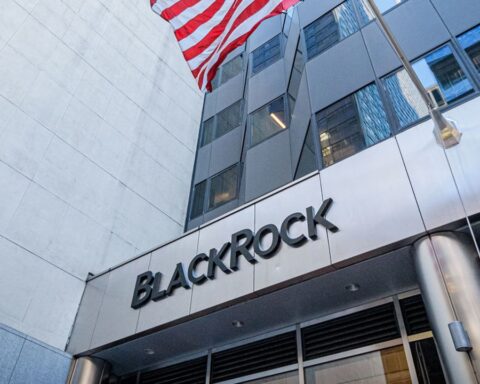Illinois has become the latest U.S. state to push forward legislation aimed at establishing a Bitcoin strategic reserve, signaling growing institutional interest in Bitcoin as a financial savings technology. House Bill 1844 (HB1844), introduced by Illinois State Representative John Cabello, proposes the creation of a state Bitcoin reserve, making Illinois one of the first states to explore Bitcoin as a treasury asset.
Illinois’ Bitcoin Reserve Bill: Key Details
HB1844 outlines the establishment of a special fund within the state treasury designated for holding Bitcoin as a financial asset. According to the bill, the state treasurer must retain all Bitcoin for at least five years before any transactions can take place.
The filing explicitly states:
“Provides that the State Treasurer shall hold all Bitcoin deposited into the Fund for a duration of at least 5 years from the date that the Bitcoin enters the State’s custody.”
Following this five-year period, Illinois’ treasury would have the authority to sell, transfer, appropriate, or convert Bitcoin into another cryptocurrency or financial asset.
On January 29, HB1844 was referred to the Rules Committee, where final regulatory details will be established before the bill moves forward for full legislative approval.
State-by-State Adoption of Bitcoin Reserves
Illinois’ move follows a similar legislative effort in Arizona, where the state senate advanced a Bitcoin reserve bill allowing public funds and pension programs to invest in Bitcoin.
Mouloukou Sanoh, co-founder and CEO of decentralized payment network MANSA, described Illinois’ Bitcoin Act as a “step in the right direction” for Bitcoin adoption across the U.S. He noted:
“The decision to accept Bitcoin as a reserve asset is a bold step toward integrating cryptocurrency into traditional finance, positioning the state as a leader in blockchain innovation.”
While Sanoh believes Illinois’ initiative could encourage other states to follow suit, he emphasized that a nationwide approval of Bitcoin reserves would take time, depending on regulatory clarity and market conditions.
“For now, a state-by-state approach seems probable, allowing for experimentation and risk management before any broader consensus is reached.”
Meanwhile, Texas is also positioning itself as a Bitcoin-friendly state. On January 29, Texas Lieutenant Governor Dan Patrick revealed that establishing a Bitcoin reserve is among the state’s top 2025 legislative priorities.
Bitcoin as a Strategic Reserve Asset
Bitcoin has increasingly been viewed as a digital store of value and hedge against inflation, making it an attractive asset for state treasuries looking to diversify their reserves. Unlike traditional assets like gold or fiat currencies, Bitcoin is decentralized, finite in supply (capped at 21 million coins), and resistant to inflationary pressures.
The idea of governments holding Bitcoin as a strategic reserve asset is gaining traction worldwide. Recently, Czech National Bank Governor Aleš Michl proposed a $7 billion Bitcoin reserve plan, further highlighting institutional interest in the cryptocurrency.
The Role of the 2024 Bitcoin Halving
One of the key factors influencing the decision to establish Bitcoin reserves is the upcoming 2024 Bitcoin halving—a programmed event that reduces Bitcoin’s mining rewards by 50% every four years. The halving is designed to increase Bitcoin’s scarcity, historically leading to significant price appreciation in the months and years following the event.
Bitcoin’s previous halvings in 2012, 2016, and 2020 have all led to massive bull runs, attracting institutional investors and corporations looking to capitalize on its long-term growth potential. If history repeats itself, Bitcoin’s price could significantly increase post-halving, making it an even more attractive asset for state treasuries.
Why States Are Considering Bitcoin Reserves
There are several key reasons why U.S. states are exploring Bitcoin as a treasury asset:
- Inflation Hedge – With rising concerns over fiat currency devaluation, Bitcoin offers a decentralized alternative immune to monetary policy changes.
- Scarcity and Growth Potential – With only 21 million BTC ever to exist, Bitcoin’s limited supply makes it an attractive long-term investment.
- Geopolitical and Financial Stability – Bitcoin can serve as a sovereign reserve asset, reducing dependence on traditional banking systems and fiat reserves.
- State-Level Experimentation – As federal cryptocurrency regulations remain unclear, states like Illinois, Texas, and Arizona are leading the way in exploring Bitcoin integration into government finance.
Bitcoin Reserves: A Political and Economic Trend
Bitcoin’s integration into government finance is not just a financial decision—it’s becoming a political statement. Former President Donald Trump has previously hinted at the idea of creating a U.S. Bitcoin reserve, aligning with the growing trend of states adopting pro-Bitcoin policies.
With increasing institutional interest, more public officials and lawmakers are warming up to Bitcoin’s role in government treasuries, setting the stage for broader adoption across the U.S.
Conclusion
Illinois’ Bitcoin reserve bill is a bold step toward mainstream cryptocurrency adoption in state finances. As more states introduce similar legislation, the concept of Bitcoin as a strategic reserve asset is becoming more viable.
With the 2024 Bitcoin halving approaching, Bitcoin’s long-term value proposition is gaining traction among state governments, institutions, and policymakers. While regulatory uncertainties remain, Illinois’ move underscores a growing trend of U.S. states integrating Bitcoin into traditional finance, potentially reshaping government reserves for the future.




